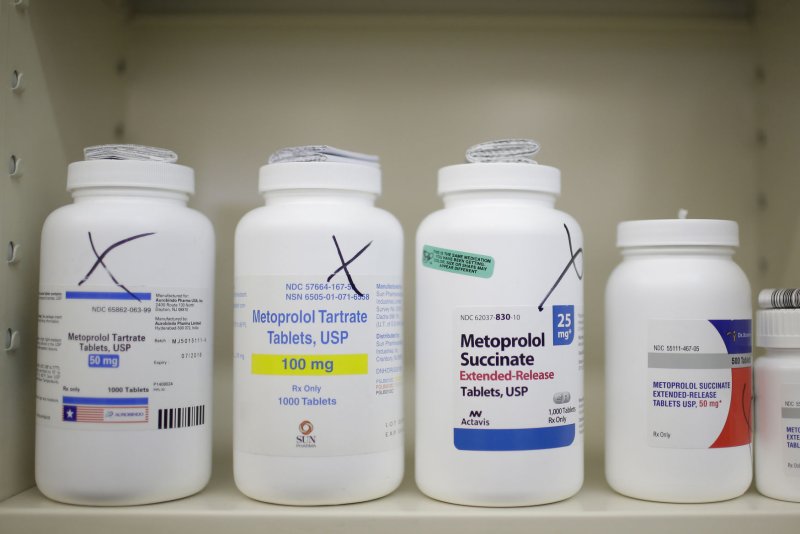The House proposal is expected to receive a full chamber vote by the end of October. File Photo by John Angelillo/UPI |
License Photo
Oct. 23 (UPI) -- A plan by Democratic House Speaker Nancy Pelosi to lower the cost of prescription drugs was passed in committee late Tuesday and will receive a full chamber vote by the end of this month.
House Resolution 3 has now passed three committees, with each vote along party lines. The ways and means committee advanced the proposal Tuesday night. It is next expected to pass the Democrat-controlled House and face potentially insurmountable resistance in the Senate.
The bill would give the federal health department the ability to negotiate lower drug prices and set a $2,000 out-of-pocket limit for Medicare beneficiaries.
"After years of congressional inaction, we're moving legislation to lower drug prices and save American families money," Rep. Richard Neal, chairman of the House Committee on Ways and Means, said in a statement.
"Thanks to this cap and lower, negotiated drug prices, more people will be able to afford the drugs they need that they may have previously forgone due to high costs," he added. "With more Americans taking the medicines they're prescribed, families will be healthier and premiums will go down."
Pharmaceutical companies often charge American consumers several times more than they charge for the same drug in other nations -- a move that greatly increases corporate profits, Pelosi said.
H.R. 3 has been renamed the Elijah Cummings Lower Drug Costs Now Act, to honor the Maryland congressman who died last week.
"He was a man of principle who believed in this institution and its power to do good," Neal said. "A fitting legacy for this great public servant, the Elijah Cummings Lower Drug Costs Now Act will do tremendous good for seniors and working families across our nation."
Republicans have criticized the proposal. Texas Rep. Kevin Brady called it a "dangerous bill with long-term consequences" that has no chance of becoming law.
The nonpartisan Congressional Budget Office said in an analysis this month the plan would save Medicare $345 billion over the next 10 years, because of the new federal authority to negotiate lower prices.
Senate finance committee Chairman Sen. Chuck Grassley and ranking Democrat Sen. Ron Wyden introduced their own bipartisan bill that sets an out-of-pocket maximum and caps drug price increases at the rate of inflation. President Donald Trump has endorsed that bill, saying it's a good "middle ground" approach.















